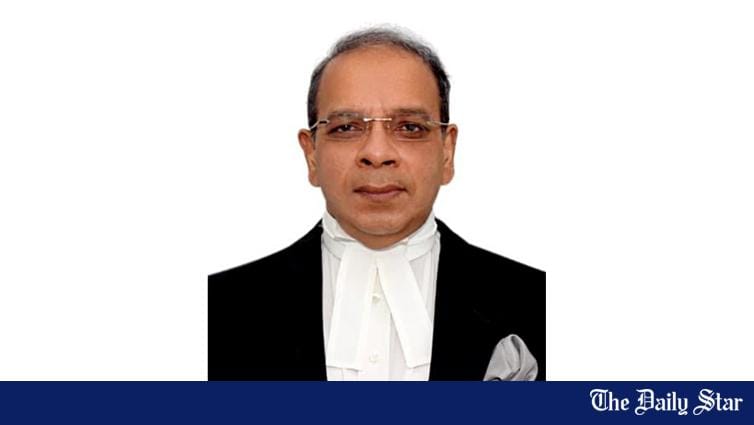Saif
Senior Member
- Joined
- Jan 24, 2024
- Messages
- 17,364
- Likes
- 8,373
- Nation

- Residence

- Axis Group


Reform should attend to class bias in justice delivery system
THIS is unfortunate that 12 years after the Tazreen Fashions fire that left at least 119 workers dead and 176 more workers injured on November 24, 2012, the victims and affected families are still denied justice. After the fire, the media reported violations of labour law, including the storage...
 www.newagebd.net
www.newagebd.net
Reform should attend to class bias in justice delivery system
25 November, 2024, 00:00
THIS is unfortunate that 12 years after the Tazreen Fashions fire that left at least 119 workers dead and 176 more workers injured on November 24, 2012, the victims and affected families are still denied justice. After the fire, the media reported violations of labour law, including the storage of flammable substances on factory premises, a lack of fire exits and the locking up of main gates. The investigation also reached a similar conclusion and recommended that factory owners and managers should be tried for culpable homicide. It is evident that the criminal negligence of the factory managers and the failure of the authorities concerned to ensure worker safety are responsible for the loss of lives, yet trial proceedings are stalled because of the prosecution’s repeated failures to produce witnesses in court. Since the trial began in October 2015, as court officials say, only 15 witnesses of the 104 named in the charge sheet have given their deposition. The delay in court proceedings ultimately shields the owner.
A similar delay in trial proceedings is also reported in the case of the 2013 collapse of Rana Plaza. Media report and police investigation showed the nature of systemic negligence and gross disregard for worker safety that existed in the operation of five factories housed in the nine-storey building at Savar. Violations of building safety codes were found which indicates complicity of the local administration in approving the construction of the building on a marsh land. There are 20 pending cases in this regard, including 11 with the labour court, all of which are stalled in various stages of legal proceedings. All the accused but the building owner are in custody. Survivors of the collapse, observing the delay, questioned the integrity of the legal system, as it appears hesitant to bring factory owners to justice. Their claims are not unfounded given that the charge sheet in the murder case filed over the Hashem Foods fire in Narayanganj, which left 54 workers dead, dropped the names of the company owner and his four sons. Barely any case related to worker death at workplace because of the owner’s negligence has reached conviction. For injured workers, the notion of justice is, however, not limited to conviction. It also includes proper compensation, the rehabilitation of the injured and an amendment to the compensation clause in the labour law.
25 November, 2024, 00:00
THIS is unfortunate that 12 years after the Tazreen Fashions fire that left at least 119 workers dead and 176 more workers injured on November 24, 2012, the victims and affected families are still denied justice. After the fire, the media reported violations of labour law, including the storage of flammable substances on factory premises, a lack of fire exits and the locking up of main gates. The investigation also reached a similar conclusion and recommended that factory owners and managers should be tried for culpable homicide. It is evident that the criminal negligence of the factory managers and the failure of the authorities concerned to ensure worker safety are responsible for the loss of lives, yet trial proceedings are stalled because of the prosecution’s repeated failures to produce witnesses in court. Since the trial began in October 2015, as court officials say, only 15 witnesses of the 104 named in the charge sheet have given their deposition. The delay in court proceedings ultimately shields the owner.
A similar delay in trial proceedings is also reported in the case of the 2013 collapse of Rana Plaza. Media report and police investigation showed the nature of systemic negligence and gross disregard for worker safety that existed in the operation of five factories housed in the nine-storey building at Savar. Violations of building safety codes were found which indicates complicity of the local administration in approving the construction of the building on a marsh land. There are 20 pending cases in this regard, including 11 with the labour court, all of which are stalled in various stages of legal proceedings. All the accused but the building owner are in custody. Survivors of the collapse, observing the delay, questioned the integrity of the legal system, as it appears hesitant to bring factory owners to justice. Their claims are not unfounded given that the charge sheet in the murder case filed over the Hashem Foods fire in Narayanganj, which left 54 workers dead, dropped the names of the company owner and his four sons. Barely any case related to worker death at workplace because of the owner’s negligence has reached conviction. For injured workers, the notion of justice is, however, not limited to conviction. It also includes proper compensation, the rehabilitation of the injured and an amendment to the compensation clause in the labour law.
It is high time that the government set a legal precedent to send out a signal that factory owners are not above the law by duly conducting the investigation and subsequent trial of the owner and other managerial staff. It should also look into the failures on part of the prosecution in producing witnesses in court and give policy directives to address reported inefficiencies and legal bureaucracy. It is an opportune moment for the interim government to engage the recently formed legal reforms commission to attend to the class bias of the justice delivery system.








































